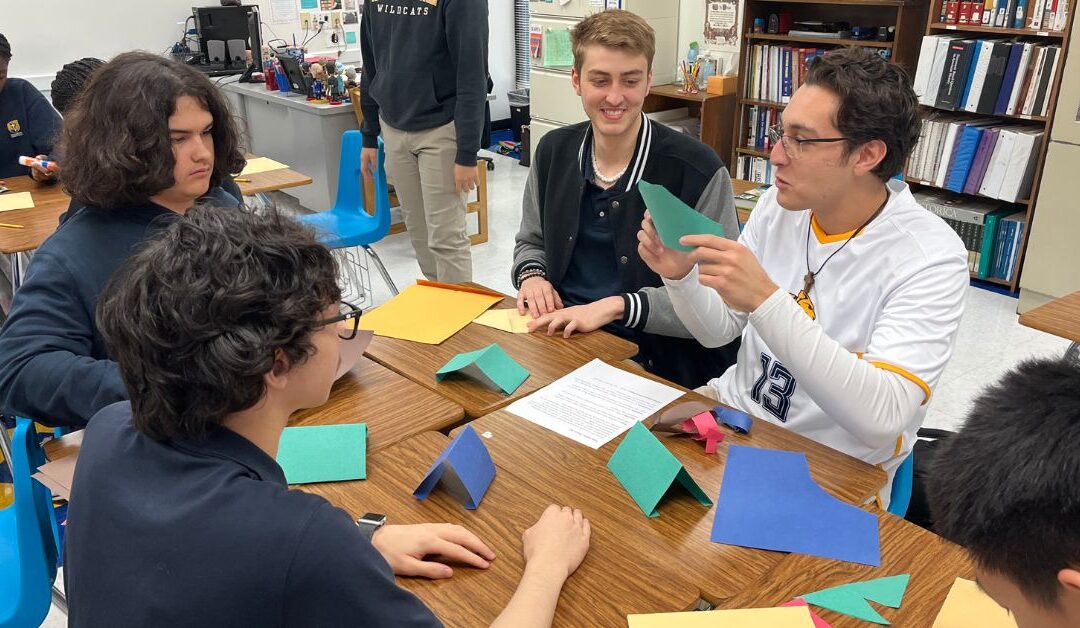Westbury Christian School Social Studies Department Head Mrs. Courtney Hatfield created a real-world simulation for her students in her senior Economics class. The students found themselves in a captivating simulation designed to explore scarcity, decision-making, productive resources, technological benefits, and the power of trade.
The class was divided into three groups to represent three fictitious countries. Each group had to select a name and a leader for their country. The leader received their country’s unique resource endowments to meet the needs of their citizens. But a problem awaited them – they quickly learned they didn’t have enough resources in their own country to make what their citizens needed.
“This forced the students to either get creative to figure out how to balance the scarcity of their resources with the wants and needs of their citizens, or learn how to trade with other nations to get what they needed,” says Mrs. Hatfield.
The scarce resources simulation demonstrated the importance of trade with other nations and for students to learn the art of diplomacy. They answered the three most important questions in economics: What do we produce? How do we produce? For whom do we produce?
After the simulation, students debriefed through a guided discussion to dive deeper into economic concepts. A few of the topics they discussed include:
- How did each country solve the problem of not having all the resources it needed to satisfy the needs and wants of its residents?
- Did the countries with capital goods have advantages in quality and quantity of production in comparison with countries lacking capital goods?
- How do diplomatic relationships between countries affect trade? Give some real-world examples.
Mrs. Hatfield’s students gained valuable insights into the complex and interconnected world of economics and international relations.

